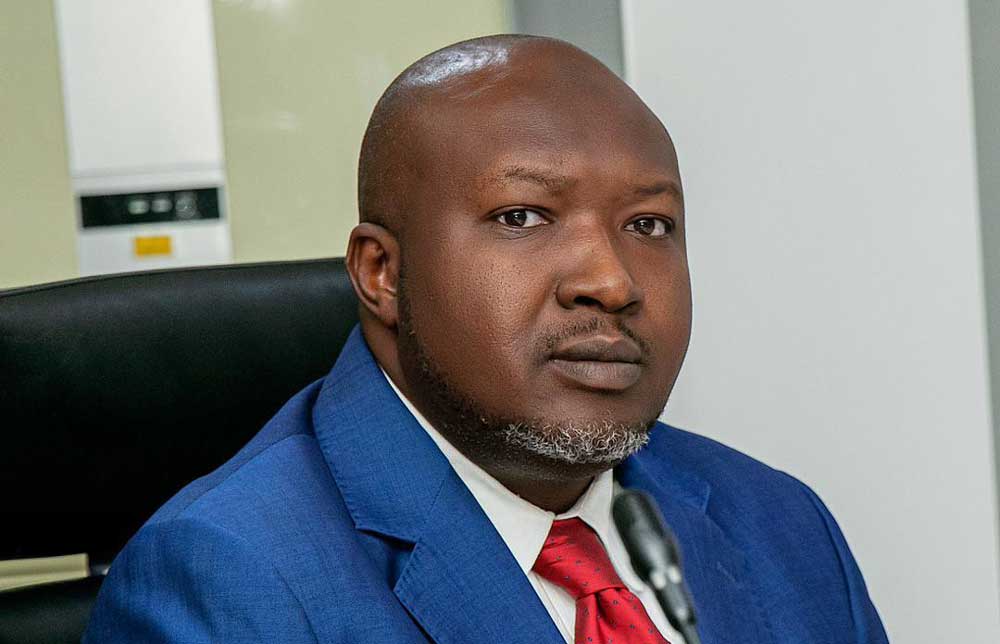The global economy’s “speed limit” — the maximum long-term rate at which it can grow without sparking inflation — is set to slump to a three-decade low by 2030, according to a new World Bank report.
An ambitious policy push is needed to boost productivity and the labor supply, ramp up investment and trade, and harness the potential of the services sector, the report said.
The report entitled, “Falling Long-Term Growth Prospects: Trends, Expectations, and Policies’’ and emailed to Persecondnews from Washington, U.S., offers the first comprehensive assessment of long-term potential output growth rates in the aftermath of the COVID-19 pandemic and the Russian invasion of Ukraine. These rates can be thought of as the global economy’s “speed limit.”
The report documents a worrisome trend: nearly all the economic forces that powered progress and prosperity over the last three decades are fading. As a result, between 2022 and 2030 average global potential GDP growth is expected to decline by roughly a third from the rate that prevailed in the first decade of this century — to 2.2% a year.
For developing economies, the decline will be equally steep: from 6% a year between 2000 and 2010 to 4% a year over the remainder of this decade. These declines would be much steeper in the event of a global financial crisis or a recession.
“A lost decade could be in the making for the global economy,” said Indermit Gill, the World Bank’s Chief Economist and Senior Vice President for Development Economics.
“The ongoing decline in potential growth has serious implications for the world’s ability to tackle the expanding array of challenges unique to our times—stubborn poverty, diverging incomes, and climate change.
“But this decline is reversible. The global economy’s speed limit can be raised—through policies that incentivize work, increase productivity, and accelerate investment,” he said.
The analysis shows that potential GDP growth can be boosted by as much as 0.7 percentage points — to an annual average rate of 2.9% — if countries adopt sustainable, growth-oriented policies. That would convert an expected slowdown into an acceleration of global potential GDP growth.
“We owe it to future generations to formulate policies that can deliver robust, sustainable, and inclusive growth,” said Ayhan Kose, a lead author of the report and Director of the World Bank’s Prospects Group.
“A bold and collective policy push must be made now to rejuvenate growth. At the national level, each developing economy will need to repeat its best 10-year record across a range of policies. At the international level, the policy response requires stronger global cooperation and a reenergized push to mobilize private capital.”
The report highlights an extensive menu of achievable policy options, breaking new ground in several areas.
It introduces the world’s first comprehensive public database of multiple measures of potential GDP growth — covering 173 economies from 1981 through to 2021.
It is also the first to assess how a range of short-term economic disruptions — such as recessions and systemic banking crises — reduce potential growth over the medium term.
“Recessions tend to lower potential growth,” said Franziska Ohnsorge, a lead author of the report and Manager of the World Bank’s Prospects Group. “Systemic banking crises do greater immediate harm than recessions, but their impact tends to ease over time.”
The report also highlights specific policy actions at the national level that can make an important difference in promoting long-term growth prospects:
Align monetary, fiscal, and financial frameworks: Robust macroeconomic and financial policy frameworks can moderate the ups and downs of business cycles. Policymakers should prioritize taming inflation, ensuring financial-sector stability, reducing debt, and restoring fiscal prudence. These policies can help countries attract investment by instilling investor confidence in national institutions and policymaking.
Ramp-up investment: In areas such as transportation and energy, climate-smart agriculture and manufacturing, and land and water systems, sound investments aligned with key climate goals could enhance potential growth by up to 0.3 percentage point per year as well as strengthen resilience to natural disasters in the future.
Cut trade costs: Trade costs—mostly associated with shipping, logistics, and regulations — effectively double the cost of internationally traded goods today. Countries with the highest shipping and logistics costs could cut their trade costs in half by adopting the trade-facilitation and other practices of countries with the lowest shipping and logistics costs. Trade costs, moreover, can be reduced in climate-friendly ways — by removing the current bias toward carbon-intensive goods inherent in many countries’ tariff schedules and by eliminating restrictions on access to environmentally friendly goods and services.
Capitalize on services: The services sector could become the new engine of economic growth. Exports of digitally delivered professional services related to information and communications technology climbed to more than 50% of total services exports in 2021, up from 40%in 2019. The shift could generate important productivity gains if it results in better delivery of services.
Increase labor force participation: About half of the expected slowdown in potential GDP growth through 2030 will be attributable to changing demographics — including a shrinking working-age population and declining labour force participation as societies age. Boosting overall labor force participation rates by the best ten-year increase on record could increase global potential growth rates by as much as 0.2 percentage points a year by 2030.
In some regions such as South Asia and the Middle East and North Africa, increasing female labor force participation rates to the average for all emerging markets and developing economies could accelerate potential GDP growth by as much as 1.2 percentage points a year between 2022 and 2030.
The report also underscores the need to strengthen global cooperation, noting that international economic integration has helped to drive global prosperity for more than two decades since 1990, but it has faltered.
“Restoring it is essential to catalyze trade, accelerate climate action, and mobilize the investments needed to achieve the Sustainable Development Goals,’’ the report said.























Leave a comment